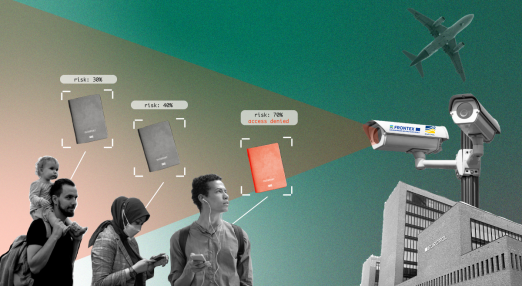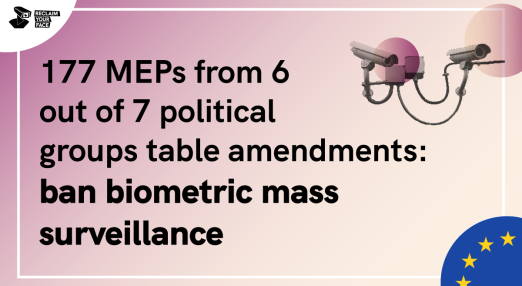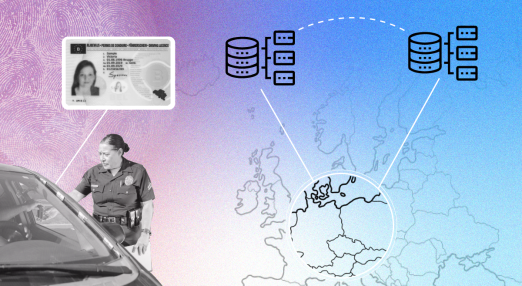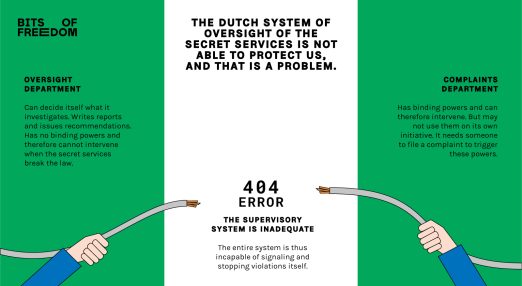“Take it personal, and don´t”: changing the decolonising process and letting ourselves be changed
This blog reviews the decolonising process so far and what we've been upto since our last communication, shared in December last year. It adds detail to how we are organising, shifting, and re-orienting the iterative and complex needs of a decolonising process.
Filter resources
-

“Take it personal, and don´t”: changing the decolonising process and letting ourselves be changed
This blog reviews the decolonising process so far and what we've been upto since our last communication, shared in December last year. It adds detail to how we are organising, shifting, and re-orienting the iterative and complex needs of a decolonising process.
Read more
-

New Data Retention ruling is a victory for civil society
The Court of Justice of the European Union (CJEU) has announced a historic judgement today: the current telecommunications data retention in Germany violates the fundamental rights of people in the European Union. The underlying data retention law is therefore null and void.
Read more
-

Rather delete than comply: how Europol snubbed data subject rights
On 8 September 2022, the European Data Protection Supervisor (EDPS) issued a decision ordering the EU law enforcement agency, Europol, to give Dutch activist Frank van der Linde access to the personal data the agency holds on him following a two-year investigation by the data protection watchdog. Findings of the inspection reveal that Europol tried to cover up the traces of the data processing and to avoid complying with the data access request by deleting van der Linde’s data.
Read more
-

Identity Crisis
Identity systems create and facilitate exclusion, insecurity, and surveillance.
Read more
-

Does Google accuse you of child abuse? Impossible! Right?
The legislator in Europe is working on a proposal that could force companies to scan all messages we exchange for child sexual abuse material. The goal is noble but it can very easily go wrong. And if things go wrong, you might suddenly be accused of sexually abusing children.
Read more
-

Police plans for the “future of travel” are for “a future with even more surveillance”
Plans hatched by Europol and Frontex to develop a “European System for Traveller Screening” that would require massive data processing and automated profiling have been condemned as ushering in “a future with even more surveillance” by German left MEP Cornelia Ernst, who told Statewatch that “the daily lives of millions of people” should not be shaped by “agencies that long ceased to be controllable by the public and the parliament.”
Read more
-

European Parliament calls loud and clear for a ban on biometric mass surveillance in AI Act
After our timely advocacy actions with over 70 organisations, the amendments to the IMCO - LIBE Committee Report for the Artificial Intelligence Act clearly state the need for a ban on Remote Biometric Identification. In fact, 24 individual MEPs representing 158 MEPs, demand a complete ban on biometric mass surveillance practices. Now we need to keep up the pressure at European and national levels to ensure that when the AI Act is officially passed, likely in 2023 or 2024, it bans biometric mass surveillance.
Read more
-

Position Paper: New EU law amplifies risks of state over-reach and mass surveillance
The EDRi network published its position paper on the proposed Regulation on automated data exchange for police cooperation (“Prüm II”). The European Commission’s Prüm II proposal fails to put in place vital safeguards designed to protect all of us from state overreach and authoritarian mass surveillance practices. In the worst case scenario, we may no longer be able to walk freely on our streets as the new law would treat large parts of the population as a criminal before proven otherwise.
Read more
-

WFH – Watched from Home: Office 365 and workplace surveillance creep
In the past few years, the pandemic and the shift to working from home have bolstered the use of remote surveillance software to monitor employees. In 2020, global demand for employee monitoring software increased 108 per cent by April and 70 per cent by May 2020 compared to pre-pandemic times. At the same time, search engine queries for "How to monitor employees working from home" increased by 1,705 per cent in April and 652 per cent in May 2020 compared to the previous year.
Read more
-

Good news: Dutch secret services destroy unlawfully stored information on millions of innocent citizens
The secret services store information on millions of citizens that they are no longer by law allowed to have. EDRi member Bits of Freefom filed a complaint about this with the supervisor. The supervisor stated on June 15, 2022, that the data must be destroyed.
Read more
-

Challenging the use of GPS tags to monitor asylum seekers in the UK
The latest rollout of GPS tags to monitor migrants is another step in creating a 'hostile environment' for asylum seekers in the UK.
Read more
-

Hooray! Bits of Freedom freed the data of millions of people from the clutches of the secret services!
The Complaints Department of the Review Committee on the Intelligence and Security Services (CTIVD), the Dutch supervisor of the secret services, ruled that EDRi member Bits of Freedom is right!
Read more
